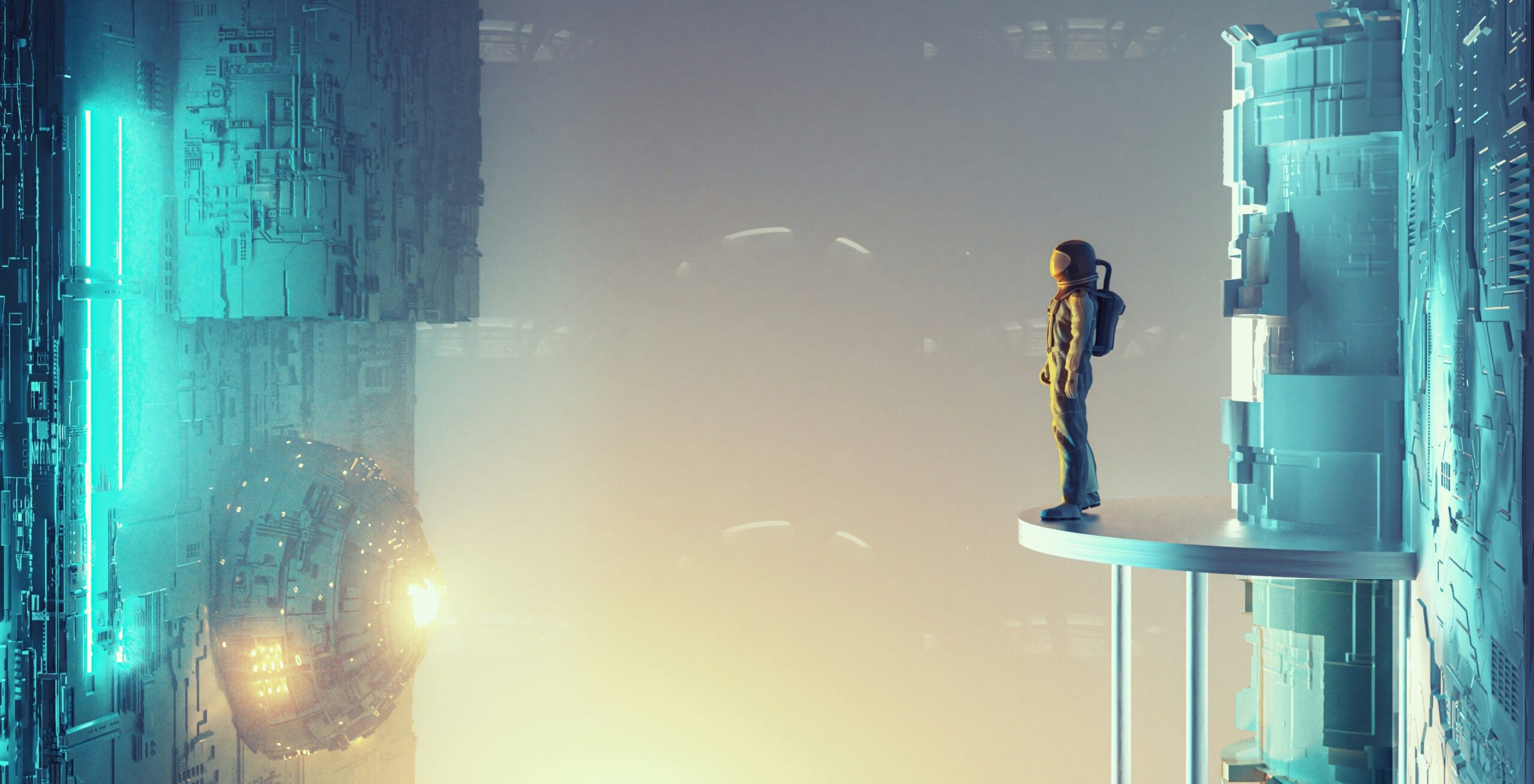
Science fiction has long been seen as a genre of spaceships, robots, and distant planets. But beneath the surface of alien landscapes and futuristic technology lies something much more profound: a mirror reflecting who we are, what we fear, and where we might be going. Far from merely escapist entertainment, science fiction is a powerful tool for understanding the human condition. It allows us to explore our hopes and anxieties, test moral boundaries, and imagine the consequences of our actions—all in a world just beyond our current reach.
The Mirror of Imagination
At its heart, science fiction is a genre built on imagination. It allows writers and creators to dream up entirely new worlds and possibilities. Yet, interestingly, these imagined futures often say more about the present than the future. Consider stories like George Orwell’s 1984 or Ray Bradbury’s Fahrenheit 451. These works were never just about totalitarian regimes or book-burning dystopias. They were urgent warnings and responses to their times’ social and political climates. In revealing what might happen if specific paths are followed, science fiction encourages reflection on our current values and behaviors.
Science fiction acts like a magnifying glass. It enlarges specific aspects of our reality—technology, politics, identity—and plays them out in exaggerated scenarios. Doing so makes these issues more transparent and forces us to grapple with them in new ways. Often, the most successful science fiction stories are the ones that stay grounded in the emotional truths of their characters. No matter how advanced the technology or how distant the setting, the story’s core usually focuses on something deeply human: love, loss, ambition, curiosity, or fear.
Technology and the Human Spirit
One of the most enduring themes in science fiction is the relationship between humans and technology. The genre constantly explores how technological advances affect humanity, from Isaac Asimov’s robots to today’s AI-driven narratives. These stories often ask: What does it mean to be human? Can machines feel? Will artificial intelligence surpass us? Science fiction pushes us to think about what we can build and whether we should build it.
But it’s not all about fear and caution. Many science fiction stories celebrate human innovation and resilience. They show us overcoming great odds using intelligence, cooperation, and perseverance. For example, the Mars colonization seen in Andy Weir’s The Martian is less about survival on another planet and more about the unbreakable spirit of problem-solving and human ingenuity.
Alien Encounters and the Question of Otherness
Another powerful theme in science fiction is the encounter with the “Other.” Whether it’s aliens, androids, or alternate versions of ourselves, these stories challenge us to reconsider belonging or being different. Often, these narratives serve as allegories for real-world issues like racism, xenophobia, and inequality.
In these tales, the alien is not always a monster. Sometimes, the alien is simply misunderstood. This perspective urges readers and viewers to cultivate empathy and question assumptions. For example, in films like Arrival, communication, and understanding are shown to be the keys to resolving conflict. By presenting beings so different yet equally complex, science fiction broadens our view of existence and our capacity for compassion.
Time Travel and Moral Dilemmas
Time travel is another recurring motif that allows science fiction to explore morality in fascinating ways. If you could change a mistake, would you? If you could see the future, would it change how you live today? These questions are not just intellectual exercises. They dive into the essence of regret, responsibility, and ethical decision-making.
Stories involving time travel often highlight the unintended consequences of seemingly good intentions. They warn us that actions, even small ones, can ripple across history unpredictably. Yet, they also offer hope—perhaps we can learn, grow, and make better choices with the proper knowledge or a second chance.
The Future Is Personal
Science fiction also allows for deep introspection. While many stories focus on global crises or interstellar battles, others zoom in on personal journeys set against futuristic backdrops. These quieter narratives explore relationships, identity, and self-discovery in unique settings. Whether it’s someone falling in love with an AI, like in the film Her, or struggling with memory implants, as in Total Recall, science fiction makes room for deeply human stories in extraordinary circumstances.
In doing so, it reminds us that no matter how advanced our surroundings become, our internal struggles—love, loneliness, fear of death, desire for connection—remain fundamentally the same. Technology and progress may change the world, but the questions at the center of our lives stay constant.
Hope, Warning, and Responsibility
Science fiction walks a delicate balance between optimism and caution. It can be a beacon of hope, showing us a future where humanity thrives through cooperation, innovation, and empathy. At the same time, it can serve as a warning, reminding us of the dangers of unchecked power, environmental neglect, and moral complacency.
The message is evident in both cases: the future is not simply happening to us. It is something we shape through our choices today. By imagining various possible futures—some bright, others dark—science fiction empowers us to take responsibility for our direction as a species.
Why It Still Matters
Science fiction remains more relevant than ever in a world filled with fast-changing technology and mounting global challenges. It gives us the space to think beyond the present moment, imagine what could be, and prepare ourselves for the triumphs and trials that lie ahead. More than just a genre, science fiction is a way of thinking—a tool that helps us navigate the uncertainties of our rapidly evolving world.
Science fiction does not predict the future; it provokes us to think about it. It inspires creativity, encourages critical thinking, and fosters empathy. And in doing so, it teaches us not just about the possibilities of tomorrow but about the essence of being human today.